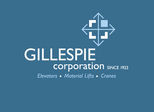- Glenn Siegel
- Mar 1, 2018
Long-lost Massachusetts native Ricky Ford came back to the Bay State on Friday, February 23 and brought out the largest Pioneer Valley Jazz Shares audience of the season to Hawks & Reed in Greenfield. Over 100 folks filled the 4th floor Perch to hear the great tenor saxophonist lead his Quartet, which included John Kordalewski, piano, Jerome Harris, acoustic bass guitar and Barry Altschul, drums.
The 80-minute concert was filled with robust originals and some very muscular horn playing that brought to mind tenor titans of a bygone era. Born in Roxbury, Massachusetts in 1954, Ford has crafted quite the resume. After studying with Ran Blake, George Russell, Jaki Byard and Joe Maneri at the New England Conservatory, he launched an impressive career that has included recordings and performances with Lionel Hampton, Mercer Ellington, Charles Mingus, Mal Waldron, Abdullah Ibrahim and Yusef Lateef. Besides an impressive catalogue of dates as a leader for Muse and Candid, Ford can be heard to advantage on Ran Blake’s The Short Life of Barbara Monk, Abdullah Ibrahim’s Water From an Ancient Well and Tenors of Yusef Lateef & Ricky Ford, among many others.
Soon after headlining Magic Triangle Series concerts at UMass in 1991 (alongside George Cables and Pete LaRocca) and 1994 (with Danilo Perez, Alan Dawson and a brass section), Ford embarked to Paris, where he has resided since.
As so often happens in the myopic and self-centered U.S. jazz scene, artists who live abroad quickly drop out of sight and mind. So for decades we lost track of Ricky Ford, who was busy teaching at Istanbul Bilgi University, running the Toucy Jazz Festival in Yonne, France, curating a gallery space, painting, gigging, recording and raising a family. For the last couple of years, he has made annual pilgrimages to the States around this time.
Ford has lost none of his drive and fire, tearing through uptempo originals with the swagger of a Johnny Griffin or Paul Gonsalves. His ballad playing also evoked an earlier era when unhurried storytelling and a full, round sound carried the day.
Born in 1943, Barry Altschul is the elder statesman of the band. Like Ford, Altschul lived in Paris for about 10 years, beginning in 1983. Ford has 11 dates as a leader on Joe Fields’ Muse label. Altschul’s first two hugely influential records as a leader, You Can’t Name Your Own Tune (1977) and Another Time/Another Place (1978), were also recorded for Muse. But their paths have only crossed in recent years. Although the Bronx-born drummer is associated with progressive musicians like Paul Bley, Anthony Braxton and George Lewis, Altschul has the whole of jazz history under his fingers. He propelled the band mightily on Friday. During each piece he would swing on one part of his kit before moving the energy to another. Each time he changed focus, our attention would freshen and momentum would build.
Jerome Harris, who spent years playing bass for Sonny Rollins, certainly knows a thing or two about providing momentum and a solid foundation. We heard him accomplishing the same thing in a different context in October, when his atmospheric underpinnings gave body to Mike Baggetta’s Trio. Here in a more traditional setting, Harris got to solo more often, taking full advantage of the space to launch a number of nimble and lyrical statements. Along with Steve Swallow, Jerome Harris is the pre-eminent acoustic bass guitarist in jazz. Valley audiences get one more chance to hear his artistry on March 21st, when he performs with the Marty Ehrlich Quartet at Hampshire College.
Pianist John Kordalewski, a 1976 graduate of Amherst College, leads the Makanda Project, a 13-piece band dedicated to preserving the compositional legacy of Makanda Ken McIntyre. They gave a transcendent Jazz Shares concert in Springfield in 2014. Kordalewski also arranged a fabulous event with South African trumpet great Feya Faku last year at the UMass New Africa House. Kordalewski, who has his doctorate in Education from Harvard, not only arranges concerts, he is a first-rate, self-taught jazz arranger. Kordalewski remarked that the Etsey piano, “didn’t have a sound”. But despite the limitations, he found things to say on the instrument.
The stories flowed before and after the concert. Jazz artists are nothing if not tellers of tales. Saxophonist Charles Davis told Ford about the time Sun Ra was being hassled by police. “This is the worst planet I’ve ever been to,” Ra told the officers. Altschul recounted how much grief Sam Rivers endured in the 1970s for hiring two white guys, Altschul and Dave Holland. And so on.
After gigs at the Side Door Café in Old Lyme, Connecticut, Mark Morganelli’s Jazz Forum in Tarrytown, New York and some others, Ford is back to his life on the Continent. Let’s hope we don’t have to wait another 25 years to see him again.



























